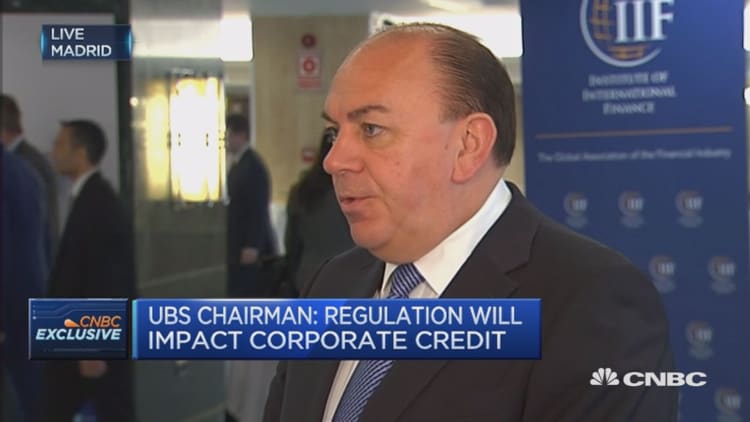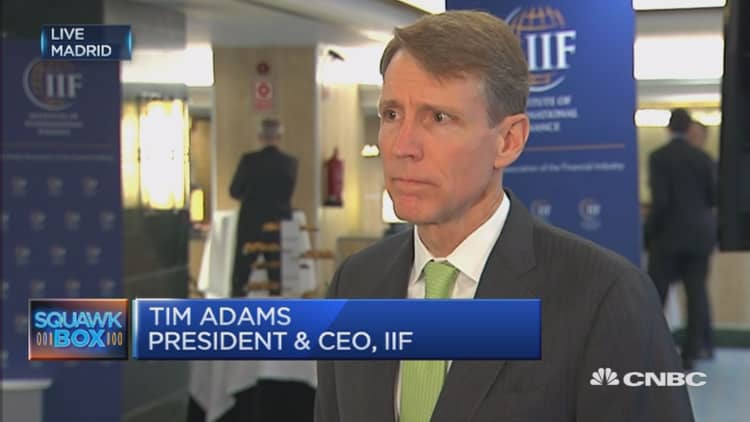
The near-victory of the far-right in Sunday's Austrian elections is a symptom of the rise of populism in Europe, experts said on Tuesday, warning that the move towards the right held risks for investors and the broader euro zone economy.
Austria narrowly avoided electing a far-right president after the Green Party candidate barely beat the Freedom Party of Austria candidate.
The Green Party's Alexander Van der Bellen won 50.3 percent of the vote, compared to the Freedom Party of Austria's Norbert Hofer, who received 49.7 percent of votes, said the Austrian Interior Ministry.
The results stresses that "almost half of the Austrian voters in fact did vote for right-wing populist Hofer and seem to sympathize with a very strict stance on Austria's refugee policy and a very distant relationship with the EU, " said ING analysts in a note.
ING said that the Austrian vote was another example, "that populist parties do not only flourish during recessions or in economically difficult times. Populist parties can also be successful in core euro zone countries, which enjoy healthy economies with low unemployment rates."
Tim Adams, president and CEO of the Institute of International Finance, told CNBC on Tuesday from Madrid that the outcome was worrying.
"We obviously need to be concerned — they dodged a bullet in Austria, but it's the symptom of a larger problem across Europe but also in the U.S. which is a rise of populism, a lack of confidence in the establishment and a lack of confidence in the post-war agenda of globalization, internationalization, immigration and trade, and that's very frightening actually," he said.

The Freedom Party of Austria is viewed as right-wing to far-right, with a populist slant to its policies. It takes a hard stance on immigration, which is particularly contentious in Austria in the wake of Europe's refugee crisis.
Capital Economics warned on Tuesday that a Freedom Party-led government was still on the horizon, with Austria's immigration policy likely to remain loose enough to worry some citizens.
"The FPÖ (Freedom Party) remains ahead in polling for the general election, which must be held by 2018," Andrew Wishart, assistant economist at the research firm, said in a report on Tuesday.
Meanwhile, UBS Bank chairman Axel Weber told CNBC the political events in Austria represented the general sentiment in Europe overall.
"The established parties who tend to be center left/center right have really lost a lot of traction with voters so you're seeing more non-centrist parties, be it on the right or on the left, take traction," he said on Tuesday.
"You're seeing the not-so-much established big parties get big players. We know little about these parties, we don't know where they are heading medium to long-term — they're very often grass-root movements that have become very powerful and I think the risk is we're losing established policy making and reliability in politics and we see big U-turns and big differences in direction within a country's politics," said Weber.
Populist parties have gained appeal with voters in Europe ever since the global financial crisis of 2007-08. Right-wing populist parties outside of Austria include the United Kingdom Independence Party (UKIP), the Front National in France, Alternative for Deutschland in Germany and Golden Dawn in Greece.
"The risk is that Europe continues to produce political risk and political risks are a main reason why investors abroad, particularly outside Europe, don't invest in Europe — so the uncertainty is that the politics this is producing is a real negative for Europe as an investment location and I think that's really the concern I have," Weber told CNBC.
According to ING, the contentious elections in Austria are a clear warning to the rest of the euro zone that, "increasing populism is likely to reduce options for potential government coalitions, limiting common ground for economic policy options, thereby possibly hampering growth and consequently again preparing the grounds for more populism."
Polls suggest Marine Le Pen of France's National Front party is set to progress to the final round of the 2017 presidential election, Wishart noted.
"The performance of the far-right party suggests that a Le Pen presidency in France is not implausible," he concluded.
Follow CNBC International on Twitter and Facebook.
—Katy Barnato contributed to this report.


